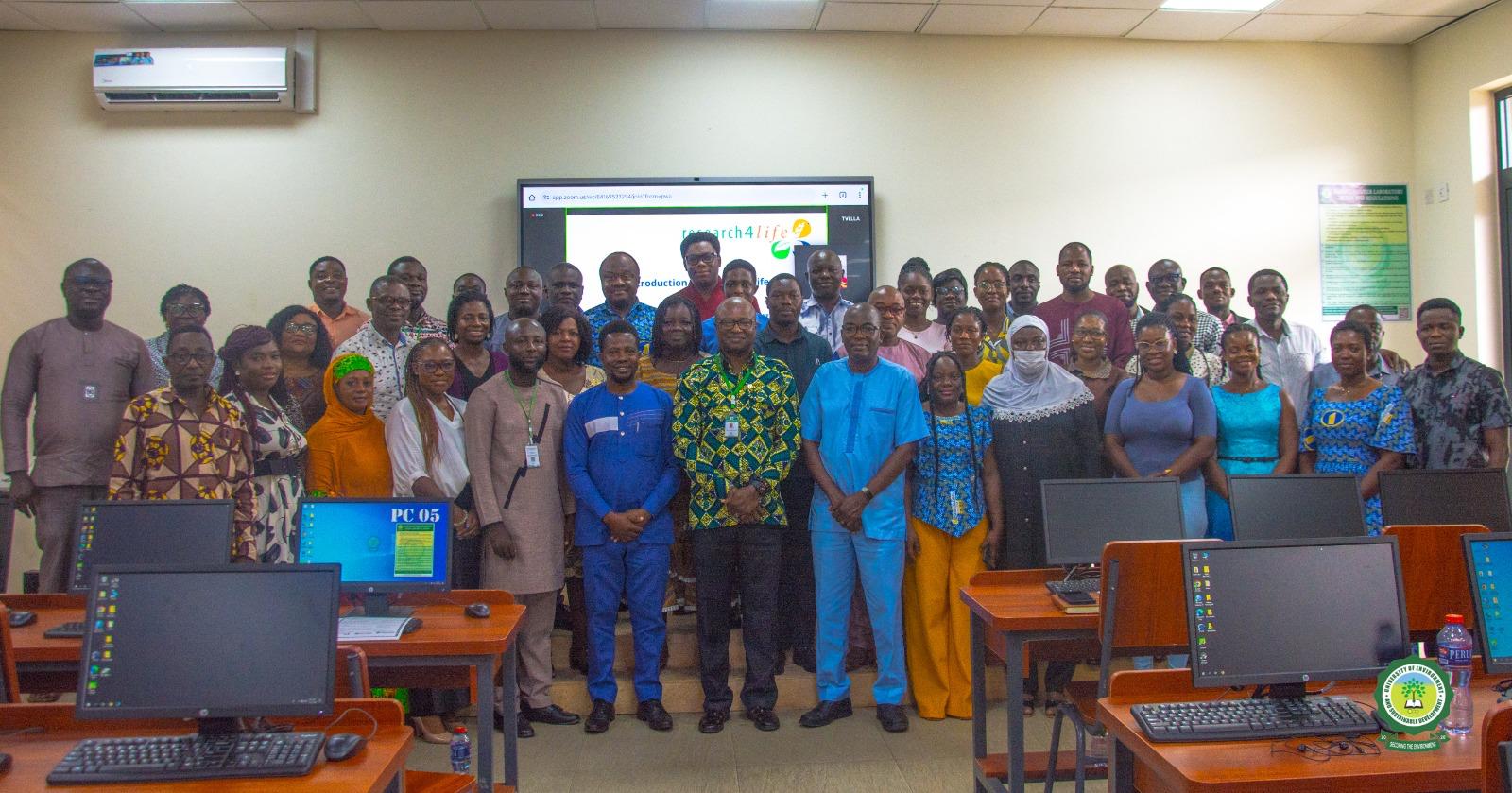The University of Environment and Sustainable Development (UESD), Smanya, Eastern Region has hosted a two-day capacity-building workshop on Access to Scientific Research and Intellectual Property for faculty and researchers in Partnership with Research4Life.
Research4Life is a global initiative that provides free or low-cost access to peer-reviewed academic and professional content for institutions in developing countries.

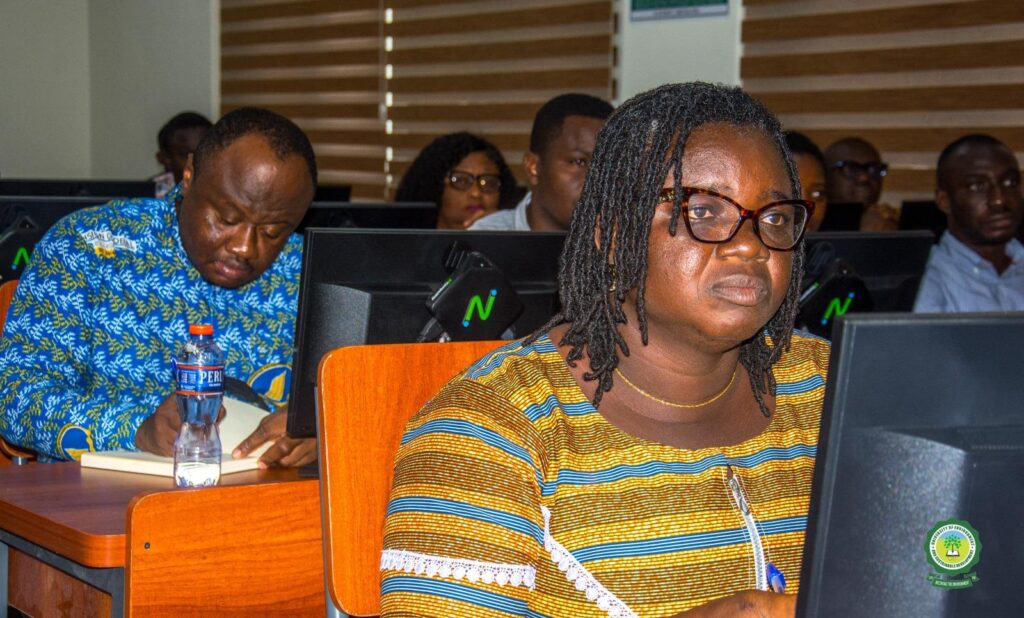
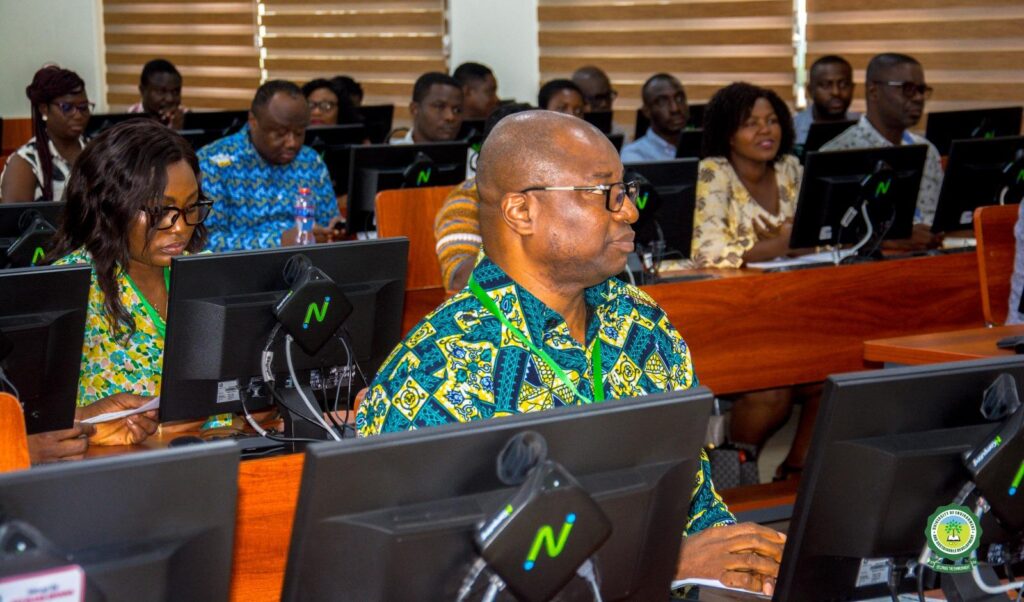
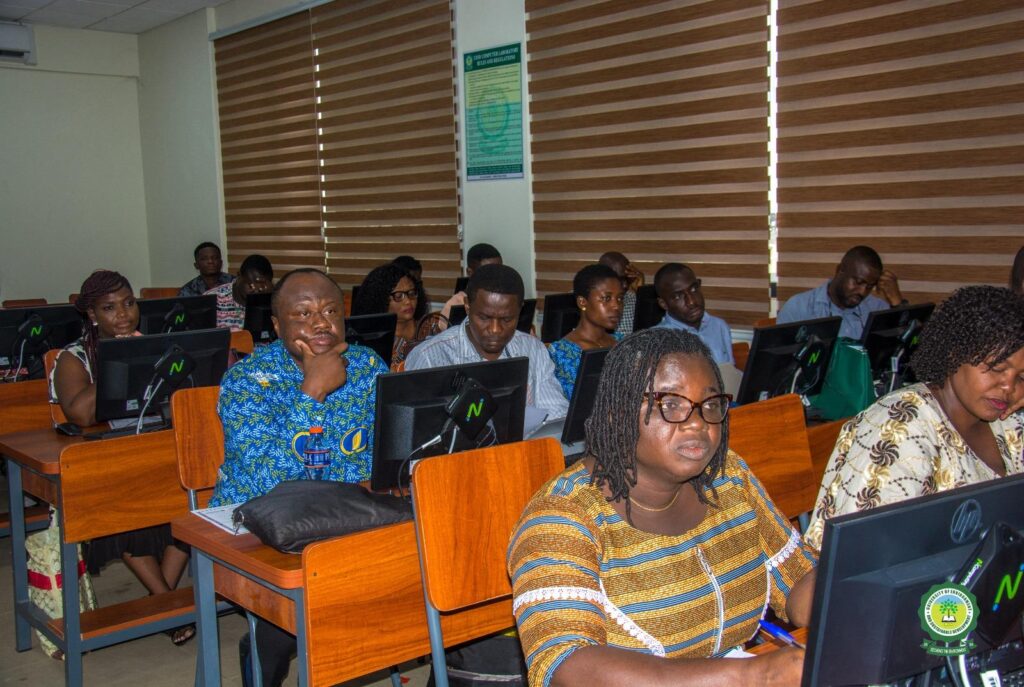
The workshop which was held at the University’s Computer Laboratory, brought together faculty members from the Department of Environment and Public Health, as well as participants from Ensign Global University, Odumase Nursing and Midwifery Training College, and Mount Mary College of Education.
In his opening remarks, the Chairman of the session, Dr.Shine Francis Gbedemah, the acting dean of the School of Natural and Environmental Sciences (SNES)urged the participants to fully engage with the session, which was designed to be interactive and include hands-on training.
The Vice-Chancellor, Professor Eric Nyarko-Sampson, in his address emphasised the importance of collaborations and partnerships in the growth and development of universities, noting that UESD currently maintains approximately 54 partnerships with various institutions—a significant achievement. He assured Research4Life of UESD’s unwavering support and urged participants to take full advantage of the learning opportunities presented during the session.
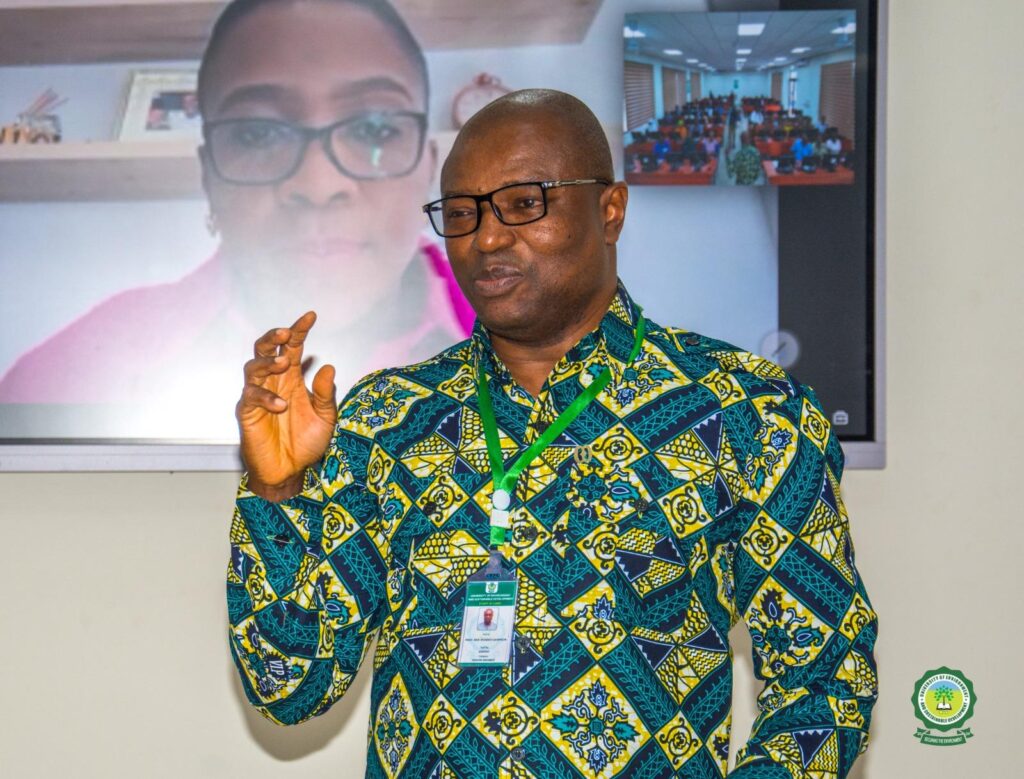
The Country Connecter for Research4Life (R4L), Dr. Miriam Linda Akeriwe, delivered a presentation on the initiative. She explained that Research4Life, established nearly 25 years ago, is a global partnership involving multiple organizations dedicated to improving access to research outputs. Its mission is to bridge the knowledge gap between high-income and low- and middle-income countries by promoting equitable access to scientific information.
Dr. Akeriwe expressed pride in Ghana’s prominent role as one of the leading connectors of R4L and a top contributor to research output in Africa. She noted that one of the key objectives of R4L is to enhance the visibility and accessibility of research originating from Ghana.
Day one of the workshop featured presentations on various key topics, including intellectual property, copyright, and plagiarism by Dr. Miriam Linda Akeriwe; an overview of Hinari resources for public health by Gehane Al Garraya; OARE resources for environmental research by Mercy Moyo; and practical guidance on accessing, searching, and downloading content from the Research4Life portal by Eric Amponsah Amoaful.
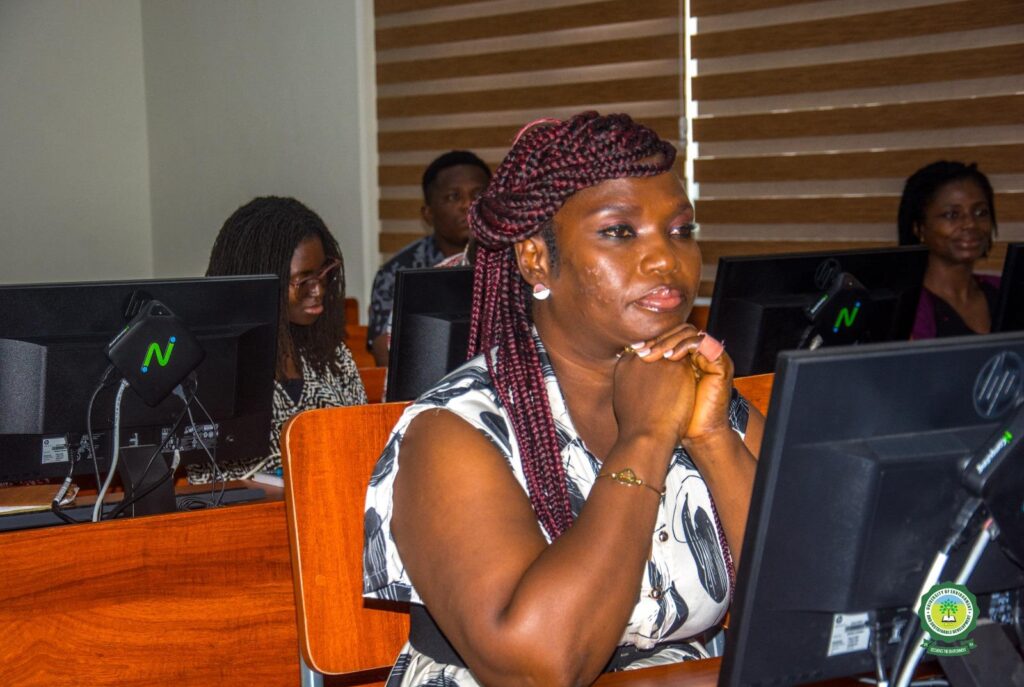
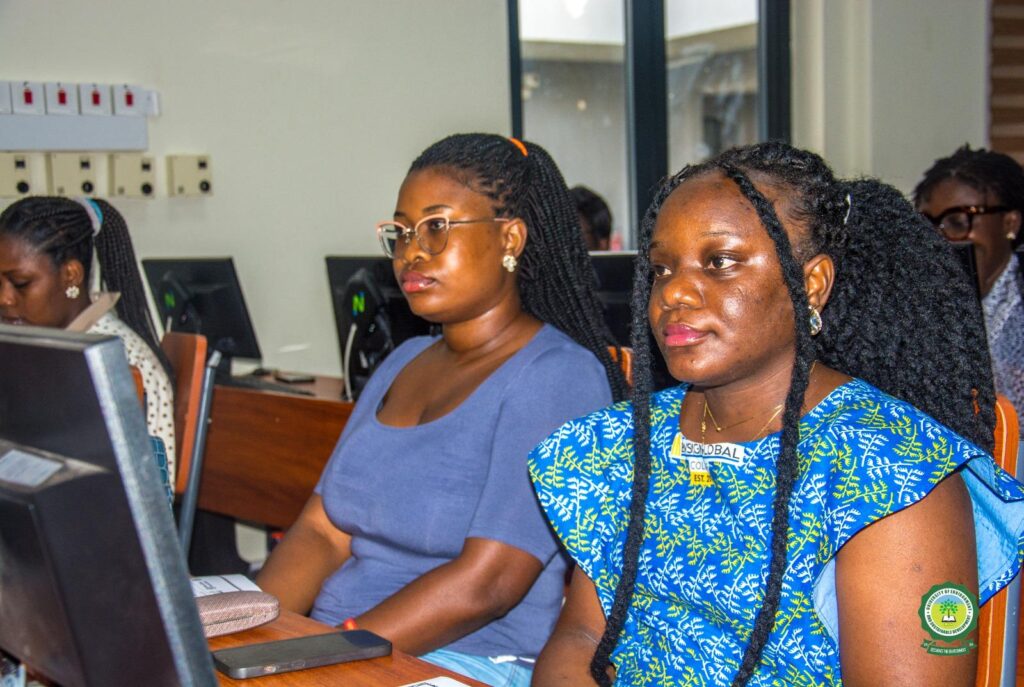
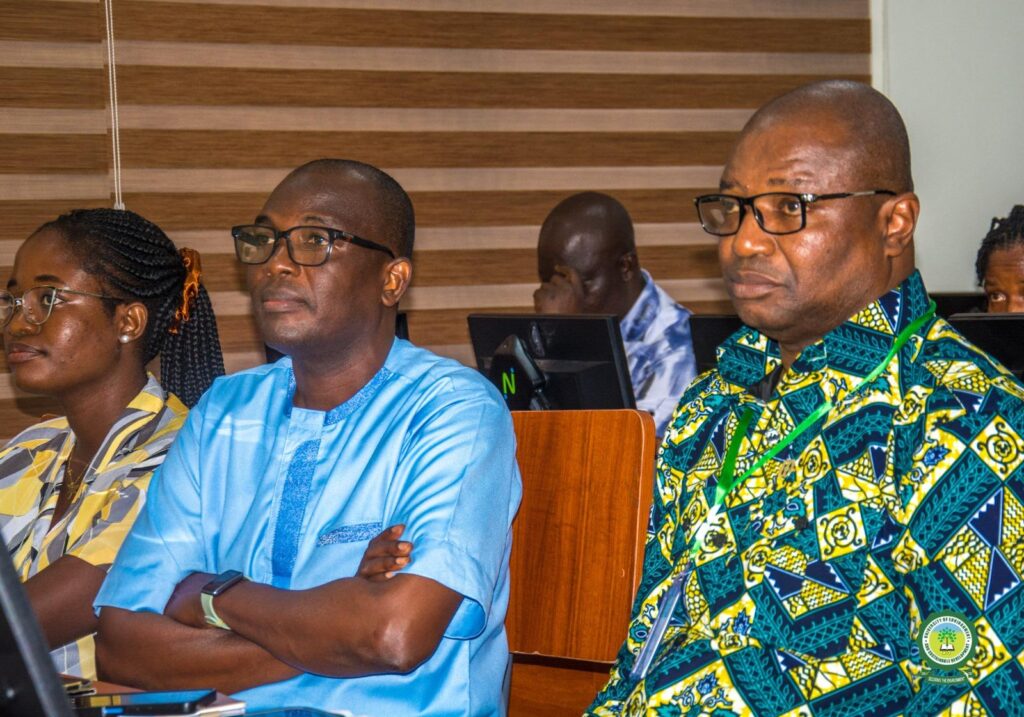

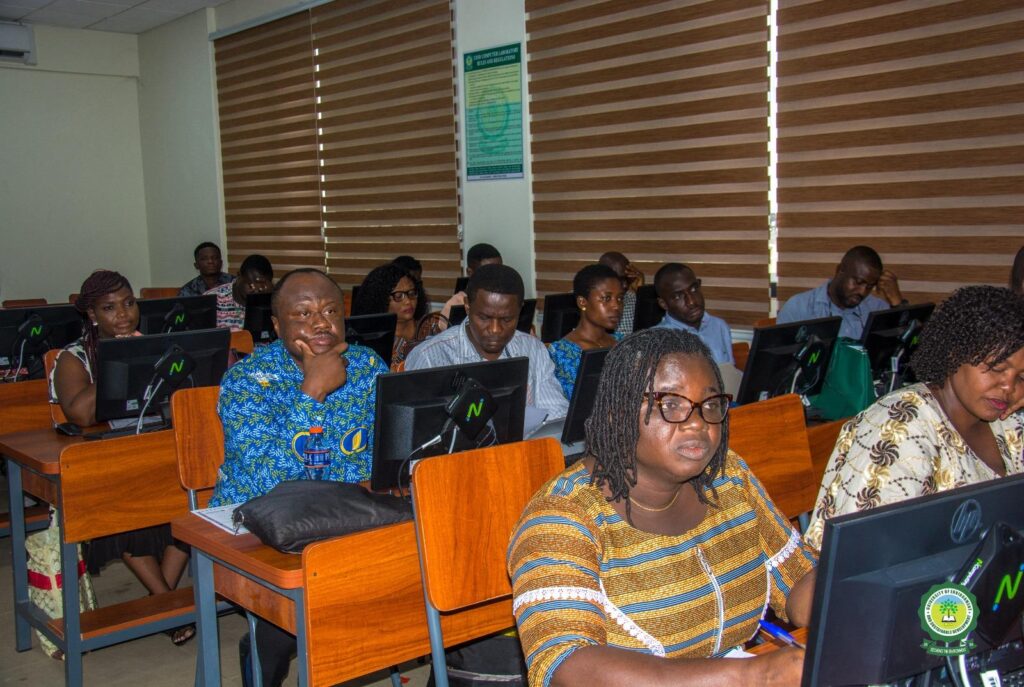
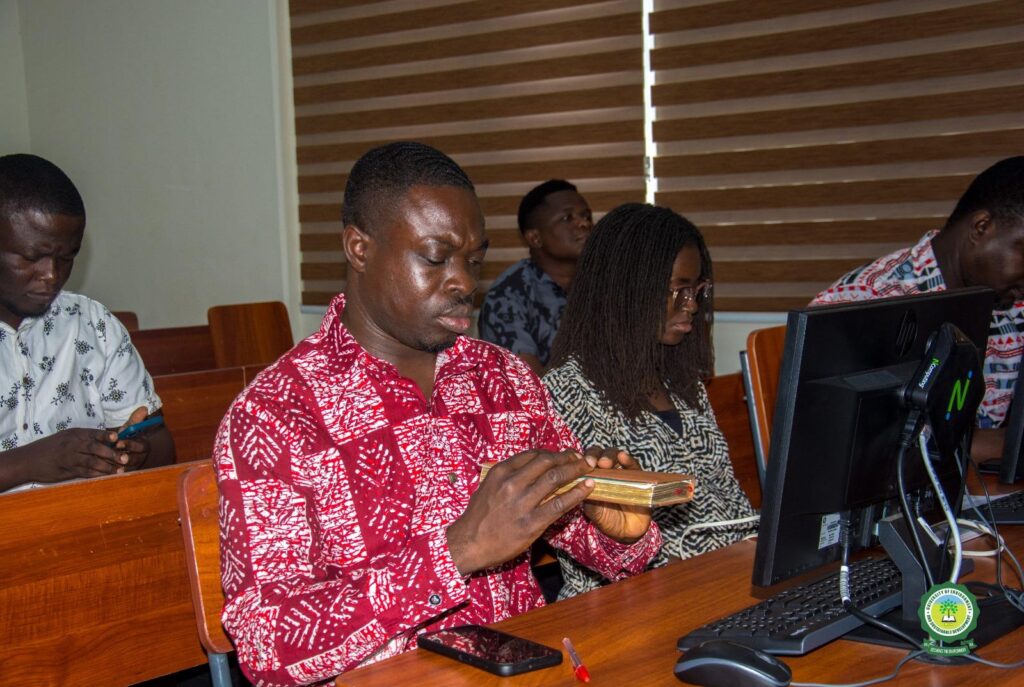
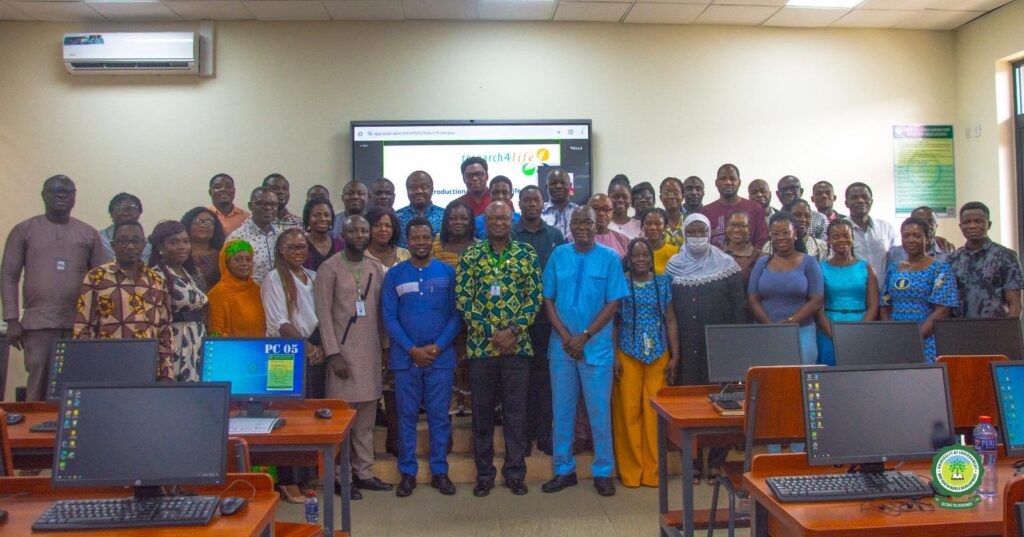
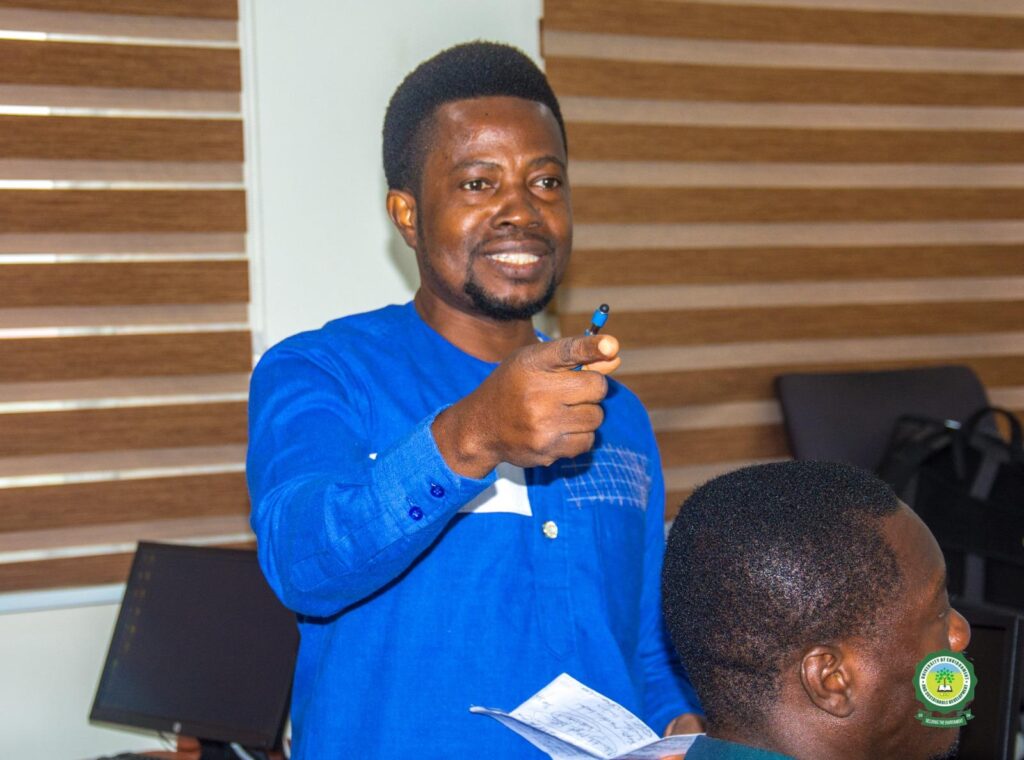
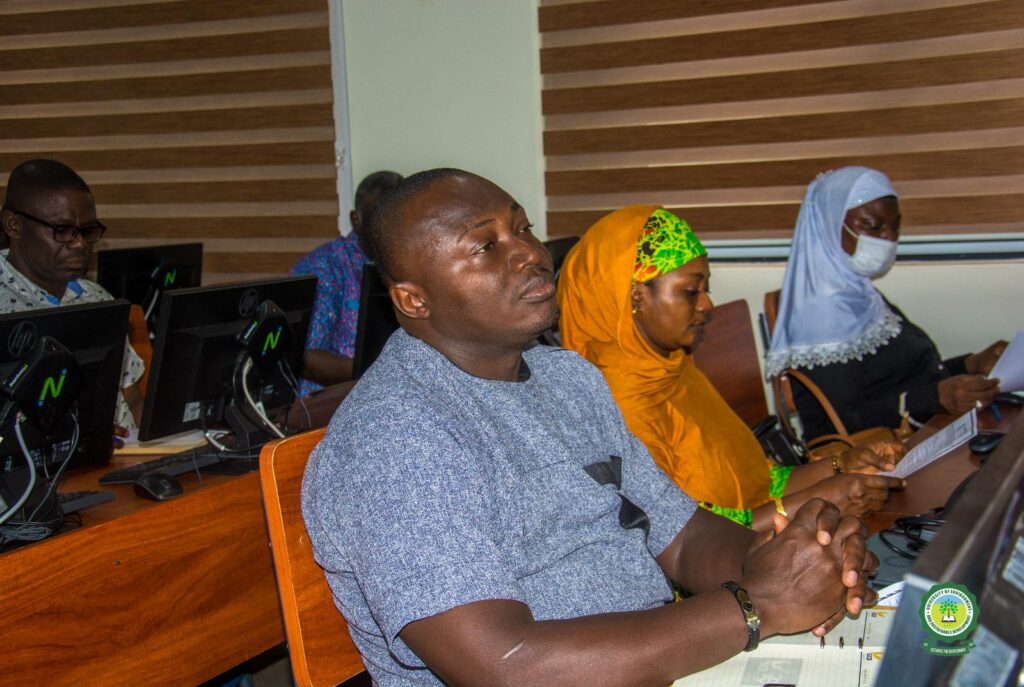
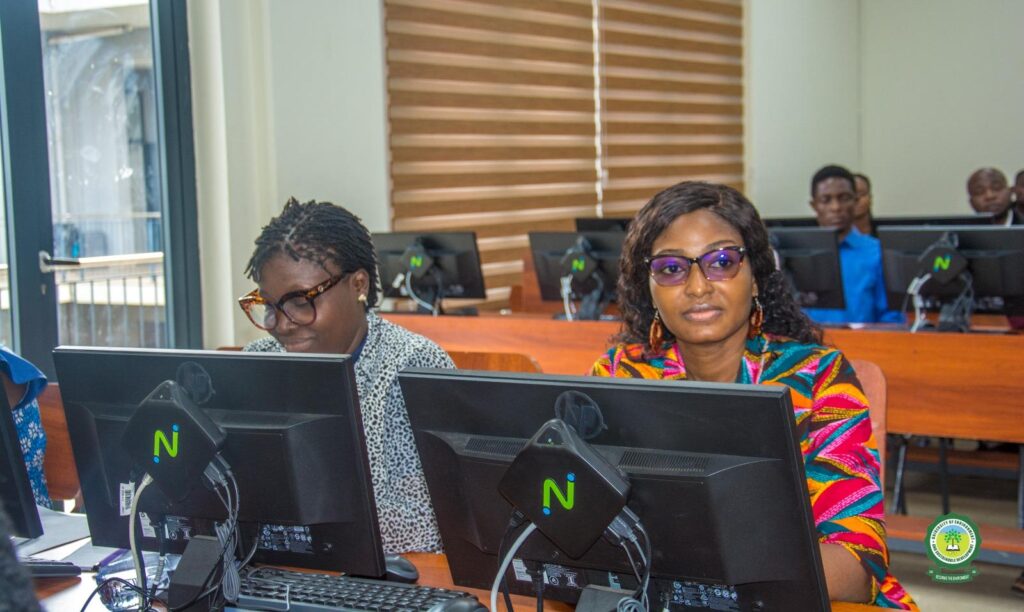
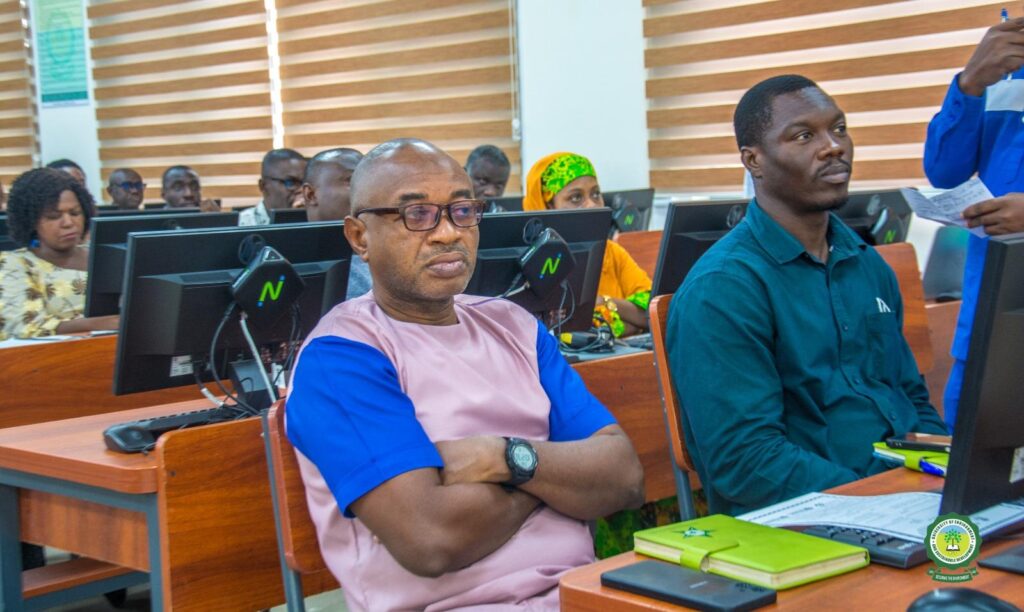
Day Two of the Research4Life Workshop equipped faculty and researchers from partnering institutions with advanced skills in research communication, systematic reviews, and reference management. The session focused on practical, hands-on training designed to enhance academic productivity and global research visibility.
A key highlight was a presentation on ORCID Adoption for Research Visibility, facilitated by Research4Life Country Connector, Dr. Dominic Dankwah Agyei. He demonstrated the importance of ORCID IDs in uniquely identifying researchers and distinguishing their scholarly work on global platforms. Participants were guided through the integration of ORCID with their publications to boost credibility and open doors for collaboration.
In a two-part session, Dr. Agyei also introduced participants to advanced literature search techniques using PubMed, emphasizing robust methodologies for conducting systematic and scoping reviews. Researchers gained hands-on experience in crafting targeted search queries and filtering high-impact studies relevant to public health and environmental science.
The session on Reference Management with Mendeley, a free tool for organizing and citing research sources, was led by fellow Country Connector, Mr. Eric Amponsah Amoatul. Participants learned to efficiently manage citations, generate bibliographies, and collaborate through shared libraries, streamlining their research processes.

